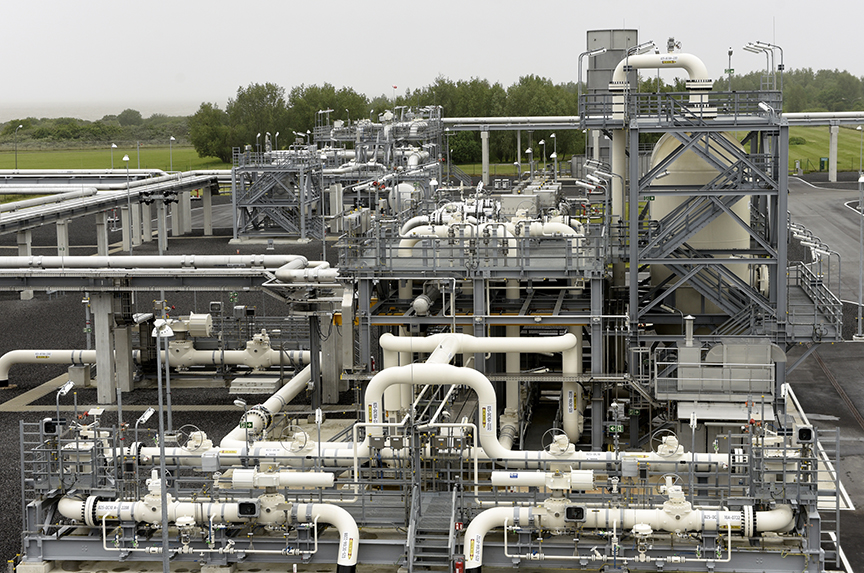 One of the key characteristics—and potential vulnerabilities—of the European energy market is its dependence on imports. The European Commission has drawn up a list of 195 key energy infrastructure projects, known as Projects of Common Interest (PCI), to create a more competitive energy market and alleviate this dependence. Some of these projects could considerably improve the competitiveness and reliability of Southern European energy markets.
One of the key characteristics—and potential vulnerabilities—of the European energy market is its dependence on imports. The European Commission has drawn up a list of 195 key energy infrastructure projects, known as Projects of Common Interest (PCI), to create a more competitive energy market and alleviate this dependence. Some of these projects could considerably improve the competitiveness and reliability of Southern European energy markets.
According to Eurostat, the energy dependency rate, a rate indicating the proportion of energy that an economy imports, was 53.5 percent in 2014 for the twenty-eight European Union (EU) member states. While a dependency rate of just over 50 percent is startling, the picture becomes more worrisome when the individual dependency of Southern European countries, such as Italy (75.9 percent), Spain (72.9 percent), and Malta (97.7 percent), on imports is considered.
The problem of energy dependency is more acute when considering the fact that gas imports come from only a few suppliers: Russia (37.5 percent of the total), Norway (31.6 percent), and Algeria (12.3 percent).
PCI are thus an important component of European energy security. To be designated as a PCI, a project must have a significant impact on energy markets and market integration of at least two EU countries, boost competition, and contribute to European energy security by diversifying sources.
PCIs are eligible to receive accelerated planning and permit approval. The designation determines a single national authority to obtain permits, improve regulatory conditions, lower administrative costs, increase public participation, and raise visibility to investors and access to financial support. In order to better facilitate new projects and attract private investment, the PCIs are partially funded by the Connecting Europe Facility (CEP), which delivers €5.35 billion, and by the EU’s fund, which will deliver €30 billion between 2014 and 2020, in order to boost energy, transportation, and digital infrastructure.
PCIs are important as new infrastructure can help diversify energy supplies and supply routes. While most of the attention for policy-makers and the press is, rightly, focused on Central and Eastern Europe energy security, Southern Europe is also vulnerable.
With the Southern European gas market in mind, certain projects are particularly important to alleviate energy dependence: the Trans Adriatic Pipeline (TAP), the Gas Pipeline Connecting Algeria to Italy (GASLI), the new pipeline between Italy and Malta, the reverse-flow interconnection between Germany and Switzerland, and the Poseidon Pipeline.
TAP, which will have a total length of 878 km and a capacity of 10 billion cubic meters per year by 2019, aims to bring gas from Azerbaijan’s Shah Deniz field from Greece to Italy. The pipeline will receive €4.5 billion in EU funding and will open a new transit corridor to bring Caspian energy to European countries.
The GASLI project, a pipeline connecting Algeria and Italy, is currently in the permitting process. The project, expected to come online by 2019, will provide isolated regions like Sardinia and the Corse Islands access to natural gas, and improve security of supply in Italy and the EU.
The third project would connect Malta to the European gas network. This project is the farthest from realization as the first of two phases will be commissioned in 2026.
The reverse-flow interconnection between Germany and Switzerland, intended to be finished in 2018, would connect the Southern European gas market with Northern European countries to create an innovative, industrial-scale deodorization facility in the district of Freiburg, which could significantly reduce air pollution in the area.
Finally, the gas pipeline from Greece to Italy, known as the Poseidon Pipeline, will connect the Italian and Greek gas networks from the compressor station in Thespratia (EL) to the receiving terminal in Otranto (IT), crossing the Ionian Sea. The project, expected to be completed by 2020, will improve European energy security by opening a direct route to the Balkans through Greece.
Albania, Greece, and Italy will benefit the most from these investments. Albania will be able to create a national energy market that is more integrated with other European countries and Greece would receive non-governmental investment because financers will include private firms. This investment will also create jobs in Greece without incurring costs for a country still strongly affected by the economic crisis.
Italy will experience the largest return on investment as it will become the heart of the Southern European gas market with around 10 billion cubic meters per year of gas entering its borders to be distributed throughout Europe. Furthermore, Italy will be more integrated in the European energy market and the number of its suppliers will increase.
The implementation of new gas pipelines and infrastructure will revitalize the Southern European energy market, facilitating a more competitive and secure environment for all parties involved and improving economic welfare. The diversification of energy suppliers, especially increased gas supplies from the Middle East and North Africa, will improve the competitiveness of the energy market. Moreover, the new infrastructure projects will stimulate economic growth, create new jobs, bring in private investment, and develop new markets. This will indirectly have a positive influence on the entire EU energy market.
Valerio Zanovello is an intern at the Atlantic Council’s Global Energy Center.
Image: Gas pipelines are pictured at a gas import terminal of Norway’s Gassco in Emden, Germany, on May 24, 2016. (Reuters/Fabian Bimmer)

